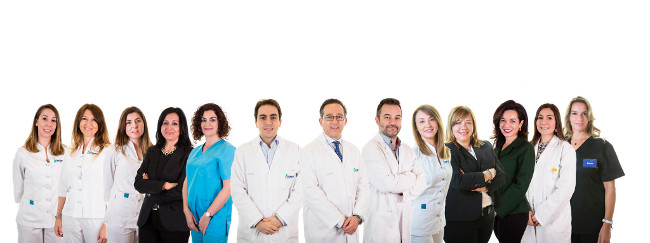This treatment allows women whose ovocytes are not capable of producing viable embryos for whatever reason, to have children. Women who have undergone the menopause, with genetic diseases or those who have received chemotherapy or radiotherapy, can require ovocytes from a donor to conceive.
Donors are young women in good mental and physical health, without history of issues. After passing a series of medical and genetic tests and a personal interview, they donate their ovocytes to other couples in an altruistic and anonymous manner. The tests conducted follow the indications of the main scientific community including the screening of sexually transmitted infections, chromosome alterations and the more common genetic illness in our world such as cystic fibrosis and fragile X syndrome.
The recipient patient must prepare her uterus for the donation procedure: through a simple oral treatment we obtain a receptive endometrium in order to receive the embryo from the combination of her partner’s sperm and the ovule from the donor.
The following can be candidates for egg donation:
- Women without spontaneous menstruation because of menopause, premature ovarian fail or surgery.
- Women with ovarian function but unviable ovocytes due to: poor quality of the ovocyte, being a carrier of a transmittable hereditary disease which can not be detected by preimplantation genetic diagnosis treatments or because of the chromosome disorders responsible for repeated miscarriages.
- Mujeres con fallos repetidos de las técnicas de fecundación in vitro.
- Situations where the ovaries are inaccessible for ovocyte recovery.
- Women over 40 years old with a very low chance of gestation probability and a high risk of miscarriage or foetal chromosome disorders where she conceives with her own ovocytes.






